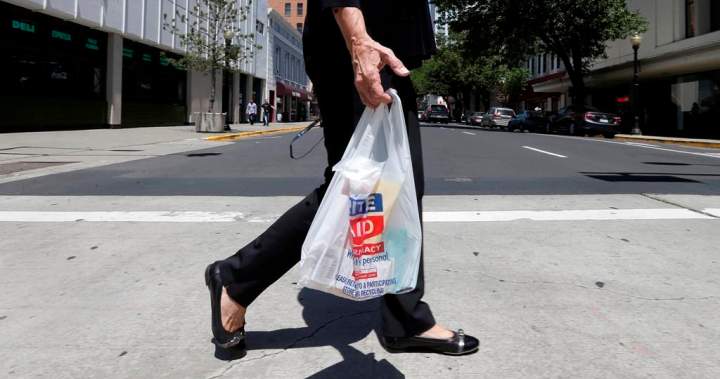The future of single-use plastics in Edmonton has emerged as a pivotal issue in the city’s mayoral race, with candidates staking out sharply divergent positions during Tuesday’s heated debate. As Edmonton grapples with the implications of its recently implemented plastic ban bylaw, voters are witnessing a fundamental clash of values regarding environmental protection, business interests, and municipal governance.
“This isn’t just about straws or shopping bags,” declared incumbent Mayor Amarjeet Sohi, defending the city’s progressive stance on environmental policy. “This is about Edmonton taking meaningful action on climate change while other levels of government continue to delay.” Sohi has positioned himself as the environmental steward in the race, emphasizing that the bylaw represents Edmonton’s commitment to sustainability and waste reduction.
The controversial bylaw, which took effect in July, prohibits businesses from providing single-use plastic shopping bags, cups, and utensils to customers. It represents one of Canada’s most comprehensive municipal plastic reduction initiatives, placing Edmonton among cities like Vancouver and Montreal that have implemented similar restrictions.
Challenger Cheryll Watson has adopted a markedly different approach, calling for an immediate reversal of the ban. “This policy exemplifies government overreach at its worst,” Watson argued, citing concerns from small business owners who report increased costs and customer frustration. “We’ve burdened our local businesses with yet another regulatory hurdle during already challenging economic times.”
The debate reflects broader tensions across Canada regarding environmental regulations. Research from the Edmonton Chamber of Commerce indicates that 68% of affected businesses report increased operational costs since the bylaw’s implementation, with an average cost increase of 12%. These figures have become ammunition for candidates opposing the measure.
Kim Krushell, positioning herself as a moderate voice in the race, proposed a compromise approach. “The environmental goals are laudable, but implementation matters,” Krushell stated. “We need to pause, consult more thoroughly with businesses, and consider a phased approach that gives our local economy time to adapt.”
Environmental advocates maintain that the costs of inaction far outweigh the short-term economic adjustments. The Edmonton Sustainability Coalition released data showing that before the ban, approximately 200 million single-use plastic items were discarded annually in the city, with less than 9% successfully recycled.
The issue has divided voters along generational lines. Polling conducted by Urban Affairs Research shows 72% support among voters under 35, while only 44% of those over 55 approve of the measure. These demographics could prove decisive in what analysts project will be a close election.
“What we’re seeing in Edmonton mirrors the broader tension in environmental politics across North America,” explains Dr. Marina Ramirez, professor of environmental policy at the University of Alberta. “Cities are increasingly becoming the frontline for climate action when federal and provincial governments move too slowly.”
Business owner Jaspreet Singh, who operates three convenience stores in the city, expressed frustration with the polarized debate. “Neither side seems to acknowledge the practical realities we face. Customers want convenience, but they also care about the environment. There must be a middle ground that doesn’t force us to choose between our planet and our livelihoods.”
As election day approaches, the single-use plastic debate has become a proxy for larger questions about Edmonton’s identity and future direction. Will the city prioritize environmental leadership even when it requires economic adjustment, or will business concerns take precedence? The answer may well determine who sits in the mayor’s office next term.
In the balance hangs not just a municipal policy, but a fundamental question for voters: In an era of climate urgency, how do we reconcile environmental imperatives with economic realities in our cities?






















